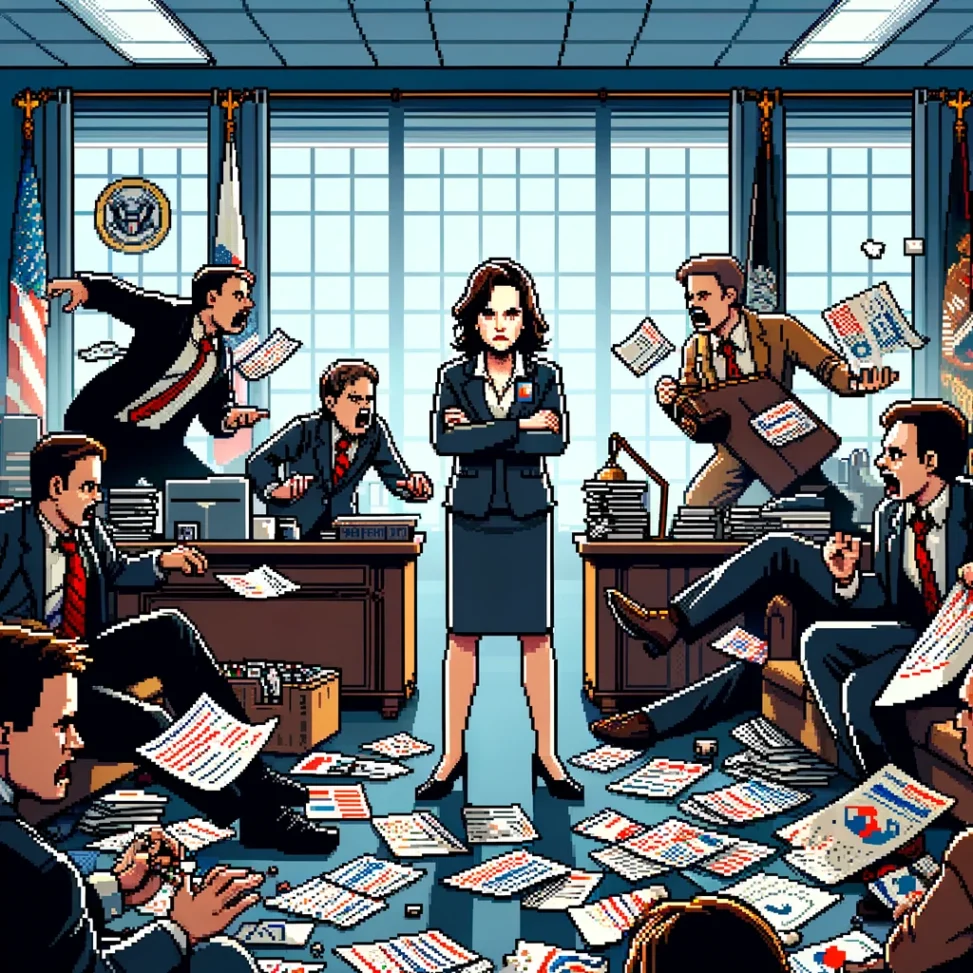I remember the first time I heard the word satire. Saaaaatire, I announced loudly. It had a funny ring to it. Initially, I had trouble understanding why anyone would write in such a style. Isn’t communication the point of an essay? Why obfuscate the point with sarcasm and innuendo? Tell me, as directly as possible, what you’re trying to say, please. This is a subtlety-free zone.
However, as I expanded my reading and consumption of world culture, I began to understand that satire was a necessary art form, especially in parts of the world where pointing out the obvious was a big no-no. Although Veep finds itself in no such position, satire is the perfect form for the show’s creator, Armando Iannucci, to illustrate his cutthroat, morally and ethically devoid picture of politics.
Veep stars Julia Louis-Dreyfus as Selina Meyer, the VP (pronounced Veep) of the United States, as she fumbles through political life. She is surrounded by a parasitic group of sycophants whose primary aim is to survive and whose secondary aim is to get to the “top.”
This description may turn you away from the show, but it’s not to be missed because it’s side-splittingly funny. The humour, the absurd insults and the constant windstorm of intrigue and chaos make you want to skip work and binge. But missing in this soup are virtues.
In the seasons I’ve seen so far, there isn’t a single moment of kindness, compassion or happiness, nor are there any moments of silence. There is a constant stream of dialogue, chaos and pandemonium so characters can take advantage of a situation. However, political biographies paint another picture. There are moments where circles of power are kind or compassionate or happy, and there are moments where the characters in Veep are put to shame by the depravity of their real-life counterparts.
The description of politics in Veep reminds me of Neil Postman’s The Age of Show Business. Postman describes a post-literary culture which focuses on image and impression. It’s not what the characters are like or what they believe. It’s what it looks like. The image reigns supreme. Veep argues that there is a negotiation between an image and expectation; the expectation of virtue can be completely imagined – i.e., honesty, compassion, etc., are virtues that the characters think the public values. The public expects this image to be presented, but neither side cares about those values. It’s all show.
So, if it’s all for show, then one wonders what purpose other than the power the characters serve. And, if it is power, then is it only for the sake of power? Even Lyndon Johnson, one of the most power-hungry politicians of the 20th century, was driven by a need to be liked, adulated and congratulated. He liked to bend people to his will, which, in itself, gave him satisfaction. However, he also liked to be liked. He drummed up adulation through his legislative agenda. But, the characters on Veep are empty. They serve no purpose other than power, and that to no end. It’s survival.
Virtues like compassion, honesty and kindness are pointless unless they can be used as leverage in other scenarios. That is the logical end of power for power’s sake. Force. Leverage. Survival. The characters serve as vassals for Power, which has no aim; their arcs are not arcs but straight lines. They are like crabs on a windy beach which hug the sand when the wind blows stronger while keeping an eye on the other crabs – they shouldn’t be getting ahead either.
Although the show is stomach-grabbing, funny and a satire of power-hungry politicians, it nevertheless, feels formulaic. Yes, politicians can be power hungry; yes, they only care about their image; yes, they have no virtues. But no, you can’t show that more than a few times before it becomes repetitive and loses its edge. Effective satire is laser-sharp.
Satire is necessary. It’s a form that works when no other form works. It’s the equivalent of a silent protest. Through innuendo, analogy and skirting around the point, the point becomes visible. If Swift had expressed his frustration with Ireland’s devastating famine by directly describing the poverty he saw, it may have proved inadequate. But, because he took the absurdity of the times to their logical end, he galvanized the reader, making them feel his frustration in their bones in the same way he felt.
Veep, for all its humour, visionless, petty, virtueless characters, channels the frustration of our times.

Shailee Shah
Great read!
Krupali Desai
Insightful analysis, capturing contemporary political frustrations with clarity.
Impressive👏